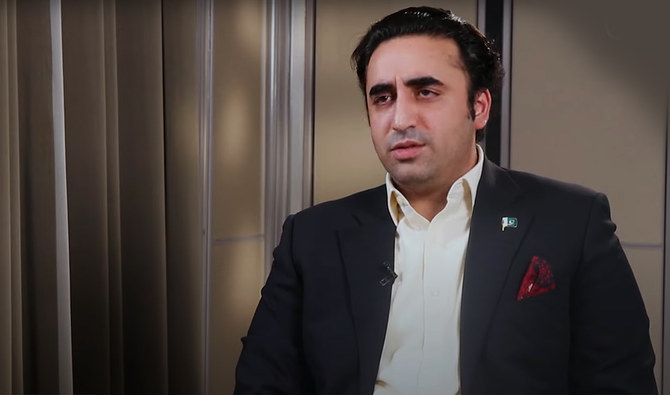ISLAMABAD: Pakistan’s Foreign Minister Bilawal Bhutto-Zardari said on Monday that “mixed messages” from the previous Pakistani government were partly responsible for Kabul’s inaction against the TTP or the Pakistani Taliban.
The TTP has been involved in an insurgency against Pakistan for the last 15 years and has carried out some of the deadliest attacks in the country. The Pakistani Taliban seek to impose a strict version of the Shariah law in Pakistan and though they show allegiance to the Afghan Taliban, are not officially part of the group.
Ever since a fragile truce between the state and the TTP— brokered by the Afghan Taliban— broke down last year, the banned outfit has mounted attacks against Pakistan’s security forces. Pakistan has asked Afghanistan to take action against the militant outfit, accusing it of using Afghan soil to launch attacks in Pakistan.
Islamabad has even threatened to carry out cross-border action if Kabul fails to act.
“There are two things, first, our own mixed messages,” Bhutto-Zardari told DW Urdu, when asked why Kabul was not taking action against the TTP despite Pakistan’s repeated demands to do so. “The previous government was telling [Kabul] to facilitate peace with them [TTP], to free [TTP prisoners] and allow them to come here, to resettle in Pakistan,” he added.
Bhutto-Zardari said every “terrorist” involved in militant activities was a “red line” for the people of Pakistan. “Any country that continues its friendship with the TTP, cannot be friends with us,” he said.
He reiterated that it was not in Pakistan’s interest or in the interests of its people to negotiate with militants who did not accept the country and its constitution.
The minister hoped Kabul would take action against militants, saying that they were threatening peace in Afghanistan as well. He, however, added that Afghan forces were unable to take decisive action against the TTP due to a “genuine issue” as well.
“Even if they want to, how can they battle all these outfits when NATO and the entire world couldn’t,” he asked.
“Neither do they [Afghanistan] have a standing army, nor a counter-terrorism force or the counter-terrorism technology [to fight militants],” he said, adding that Afghanistan didn’t even have enough forces to man its borders with Pakistan and Iran.
















